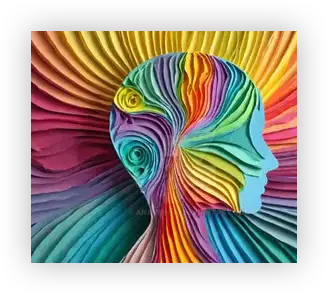Bipolar Disorder at Reliant Family Psychiatry in Mansfield & Grand Prairie, TX.
At Reliant Family Psychiatry, located in Prairie, TX, our approach to Bipolar and related disorders is rooted in a deep and comprehensive understanding and care. We’re dedicated to exploring the many facets of the bipolar spectrum, unraveling its complexities, and guiding you on a path towards complete wellness. Join us as we navigate this journey together.


Understanding Bipolar Disorder
Bipolar disorder, formerly called manic depression, is a mental health condition that causes extreme mood swings that include emotional highs (mania or hypomania) and lows (depression).
When you become depressed, you may feel sad or hopeless and lose interest or pleasure in most activities. When your mood shifts to mania or hypomania (less extreme than mania), you may feel euphoric, full of energy or unusually irritable. These mood swings can affect sleep, energy, activity, judgment, behavior and the ability to think clearly.
Episodes of mood swings may occur rarely or multiple times a year. While most people will experience some emotional symptoms between episodes, some may not experience any.
Although bipolar disorder is a lifelong condition, you can manage your mood swings and other symptoms by following a treatment plan. In most cases, bipolar disorder is treated with medications and psychological counseling (psychotherapy).
There are several types:

Bipolar I
A diagnosis where an individual has had at least one manic episode. This might be preceded or followed by hypomanic or major depressive episodes, but the hallmark remains the manic episode.

Bipolar II
Characterized by a pattern of depressive episodes interchanged with hypomanic episodes. It lacks the full-blown manic episodes that are signature to Bipolar I.
During these periods, individuals may go through intense emotional experiences:
- Mania: This isn’t just about feeling extremely good; mania is a heightened emotional state. It’s an overactive phase where individuals might feel an overwhelming burst of energy, excessive self-confidence, or even irritability. It’s so intense that it can disrupt daily life, sometimes leading to impulsive or risky choices. These episodes usually last a week or more.
- Hypomania: Considered a milder form of mania, hypomania shares many similar traits but in a less extreme form. It might seem more manageable, or even helpful, but it comes with its own set of difficulties. Lasting about four days, someone in a hypomanic state often feels upbeat and productive. However, to others, the changes in their behavior can be quite noticeable. Importantly, hypomania doesn’t escalate to full-blown mania or psychotic episodes. Yet, it can be a precursor to or follow a major depressive episode.
- Depression: The depressive phase is a stark contrast to the manic highs. It envelops the individual in deep sadness, hopelessness, or a profound disinterest in most activities. This phase is more than just a bad day; it’s a prolonged state that can significantly hamper one’s daily functioning, lasting for weeks.

Symptoms of Bipolar Disorder
The manifestation of bipolar disorder varies among individuals, but common indicators during episodes include:
Manic & Hypomanic Episodes
Mania and hypomania are two distinct types of episodes, but they have the same symptoms. Mania is more severe than hypomania and causes more noticeable problems at work, school and social activities, as well as relationship difficulties. Mania may also trigger a break from reality (psychosis) and require hospitalization.
- Decreased Sleep: Not just reduced hours, but a diminished need for sleep. An individual might feel extremely energized even after just a couple of hours of rest.
- Elevated Self-Esteem: This can escalate to a level of grandiosity, where one might feel invincible or possess special powers or abilities.
- Rapid Speech or Racing Thoughts: A whirlwind of ideas or thoughts, making it hard to focus on just one. Conversations might jump erratically between topics.
- Increased Distractibility: Easily drawn to unimportant or irrelevant stimuli, which might lead to unfinished tasks.
- Engaging in Risky Behaviors: This includes extravagant shopping sprees, reckless driving, making impulsive decisions, or having unsafe sex.
- Overactivity: Increased energy leading to hyperactivity, trying to take on multiple tasks at once, or pursuing grand and unrealistic projects.
Depressive Episodes
A major depressive episode includes symptoms that are severe enough to cause noticeable difficulty in day-to-day activities, such as work, school, social activities or relationships. An episode includes five or more of these symptoms:
- Prolonged Sadness or Despair: A constant feeling of hopelessness that affects daily functioning.
- Suicidal Thoughts or Feelings: Pondering on death, making actual plans, or even attempting suicide.
- Fatigue and Lethargy: A draining lack of energy where even minor tasks feel monumental.
- Disturbed Sleep and Appetite: This can be manifested as insomnia or oversleeping, as well as overeating or loss of appetite.
- Difficulty Concentrating: Challenges in focusing, making decisions, or recalling details.
- Feelings of Worthlessness or Guilt: Harboring a negative view of oneself, ruminating over past mistakes, or blaming oneself for events outside of one’s control.
- Physical Symptoms: Unexplained aches, pains, or digestive problems that don’t relent even with treatment.
Other features of bipolar disorder
Signs and symptoms of bipolar I and bipolar II disorders may include other features, such as anxious distress, melancholy, psychosis or others. The timing of symptoms may include diagnostic labels such as mixed or rapid cycling. In addition, bipolar symptoms may occur during pregnancy or change with the seasons.
Symptoms in children and teens
Symptoms of bipolar disorder can be difficult to identify in children and teens. It’s often hard to tell whether these are normal ups and downs, the results of stress or trauma, or signs of a mental health problem other than bipolar disorder.
Children and teens may have distinct major depressive or manic or hypomanic episodes, but the pattern can vary from that of adults with bipolar disorder. And moods can rapidly shift during episodes. Some children may have periods without mood symptoms between episodes.
The most prominent signs of bipolar disorder in children and teenagers may include severe mood swings that are different from their usual mood swings.
Causes of Bipolar Disorder and Risk Factors
The root causes of bipolar disorder are not entirely clear, but several contributing factors have been identified:
- Genetic Links: There’s a noticeable pattern where individuals with bipolar disorder often have a family history of this or other mood disorders. It’s common for those affected to have a sibling or parent with similar mental health challenges. However, it’s also true that many with such a family background never develop bipolar disorder, and there are many cases where individuals with no family history do develop it.
- Brain Structure and Function: Recent neuroimaging studies have revealed potential abnormalities in the brains of those with bipolar disorder. This includes imbalances in neurotransmitters, the chemicals that facilitate brain communication. While these discoveries are significant, they don’t definitively prove causation but rather suggest a biological association.
- Environmental Factors: Life experiences and environmental stressors can trigger or exacerbate the condition. This includes traumatic experiences, major life changes, prolonged stress, and substance abuse, which can both trigger and intensify mood disturbances.
- Hormonal Imbalance: Bipolar symptoms have been linked to hormonal irregularities, such as those involving the thyroid or adrenal glands.
- Impact of Medication and Substance Use: The use or abuse of certain drugs, including prescribed medications, can prompt the appearance of bipolar symptoms or complicate the disorder’s management.

Treatment and Management
Bipolar disorder is manageable, and our clinic, Reliant Family Psychiatry, provides holistic treatments:
Medication
Medication plays a pivotal role in stabilizing moods and preventing the extreme highs and lows associated with bipolar disorder. Commonly prescribed medications include:
- Mood Stabilizers: These are the primary medications for bipolar disorder and include drugs . They help control or reduce the highs and lows.
- Antipsychotics: If mood stabilizers don’t work as a stand-alone, doctors might prescribe an antipsychotic.
- Antidepressants: These can help manage depressive episodes. Sometimes they’re combined with mood stabilizers to prevent triggering a manic episode.
- Anti-anxiety Medications: They can help with anxiety and improve sleep, but they are used on a short-term basis due to the potential for dependence.
Lifestyle Adaptations
A balanced lifestyle can mitigate the severity of episodes and sometimes even prevent them. Recommendations include:
- Regular Sleep: Maintaining a consistent sleep schedule is crucial.
- Avoid Drugs and Alcohol: Substance abuse can trigger mood episodes and interfere with the effectiveness of medication.
- Stress Management: Techniques like meditation, deep breathing exercises, and journaling can help manage stress.
- Regular Physical Activity: Exercise can help stabilize mood and improve overall well-being.
Psychotherapy
Psychotherapy, also called “talk therapy,” can be an effective treatment for bipolar disorder when combined with medication. Common approaches include:
- Cognitive Behavioral Therapy (CBT): Helps individuals recognize and change negative thought patterns and behaviors that exacerbate the condition.
- Family-Focused Therapy: Incorporates family members to improve communication and offer support.
- Interpersonal and Social Rhythm Therapy: Helps individuals stabilize their daily routines and improve their relationships.
- Psychoeducation: Teaches patients about their condition, helping them recognize signs of mood swings.
Monitoring Moods
Keeping track of mood changes, triggers, and medication effects can be incredibly beneficial:
- Mood Charting: A daily chart or diary to record mood, medication doses, sleep patterns, and significant events can provide valuable insights.
- Early Intervention: Recognizing early signs of mood swings allows for timely intervention, potentially preventing a full-blown episode.

Discover a brighter mental well-being journey at Reliant Family Psychiatry in Texas!
- We're here to guide you every step of the way. Choose Reliant Family Psychiatry today


